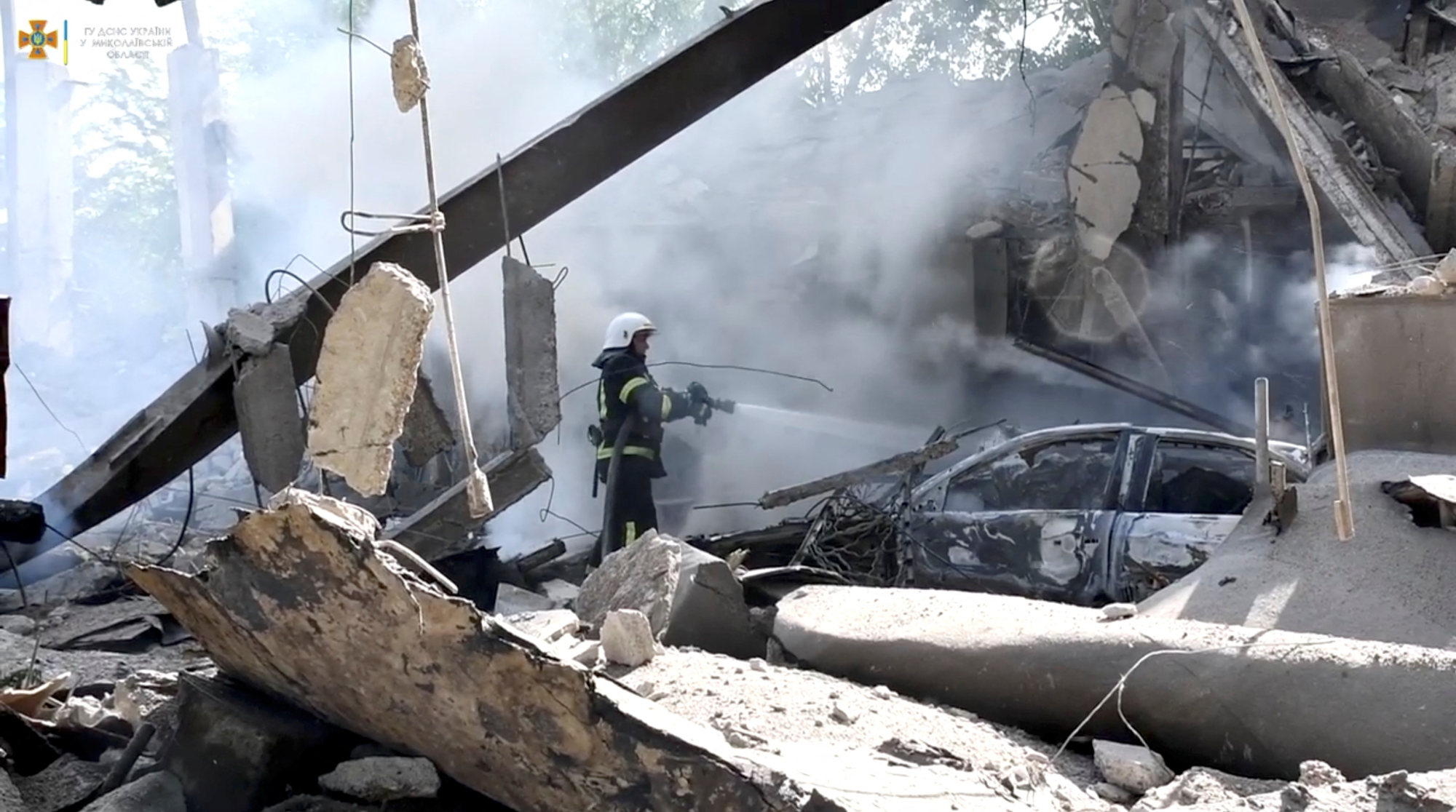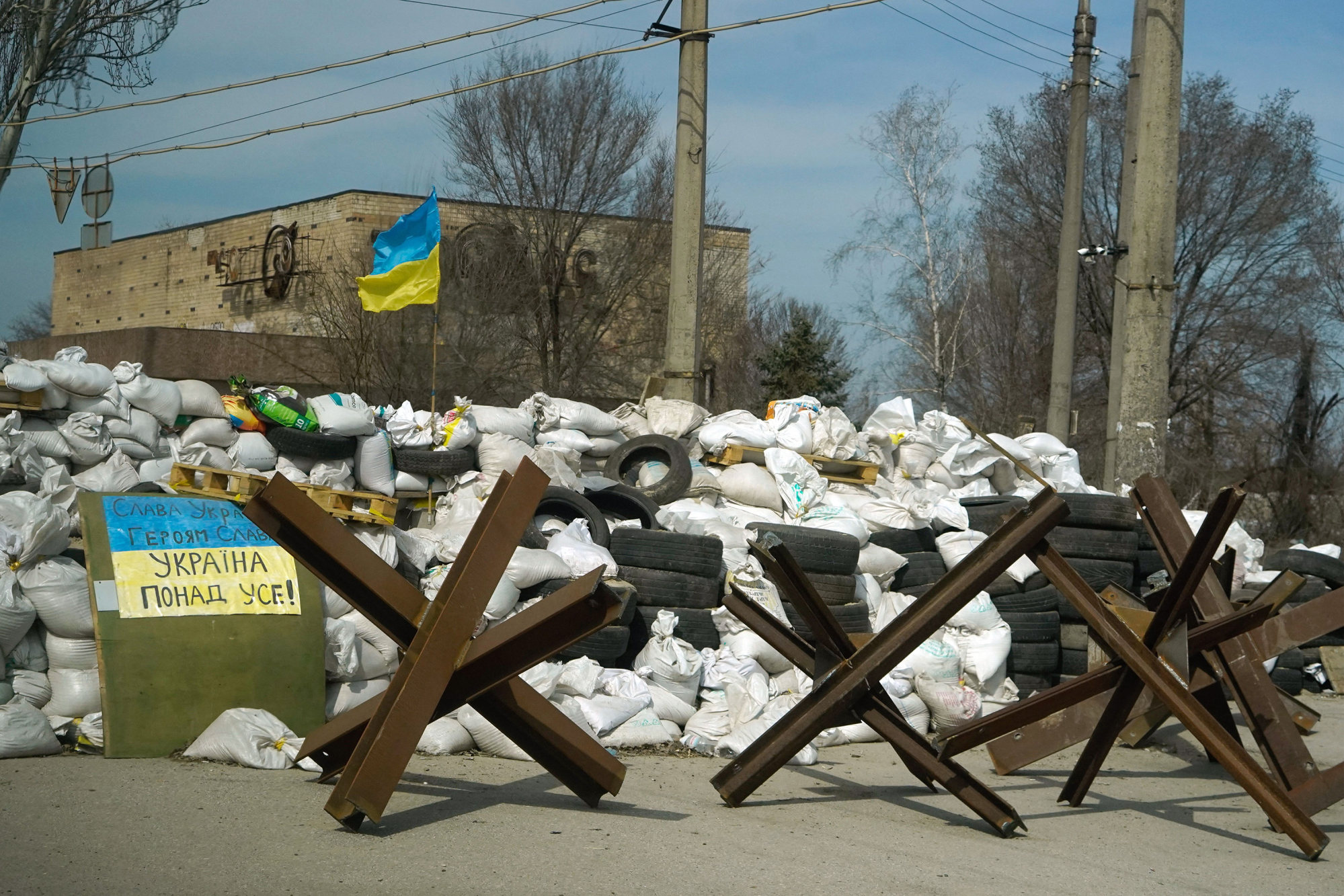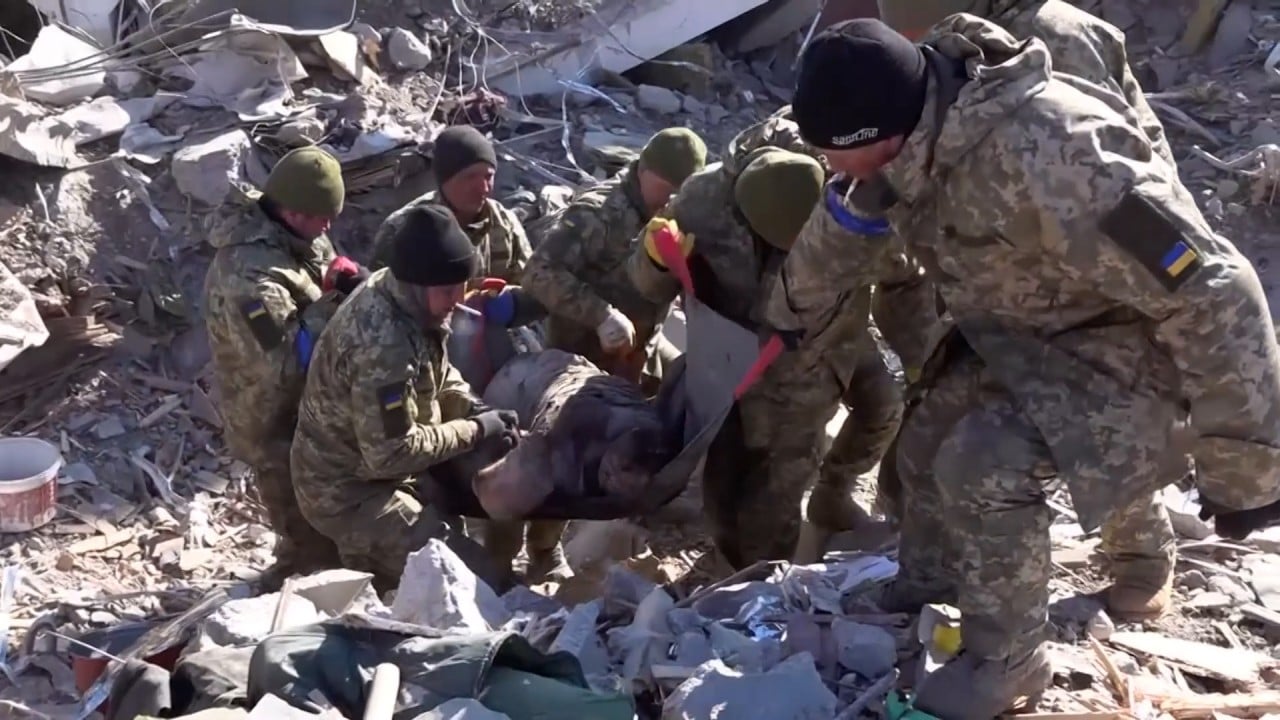
Ukraine war: Russia’s UN envoy Gennady Gatilov says Moscow sees no diplomatic solution to end conflict
- Gennady Gatilov, Russia’s permanent representative to the UN in Geneva warned the longer the war goes on the more difficult it will be to end
- A Ukrainian battalion’s deputy Commander informed his soldiers that the conflict ‘could drag on for years’
The chance of a resolution seems unlikely as Russia does not see a diplomatic solution to the war in Ukraine and expects a long battle, a senior Russian diplomat said.
Gennady Gatilov, Russia’s permanent representative to the UN in Geneva told the Financial Times that he did not see any possibility for diplomatic contacts between the two countries and warned the longer the war goes on the more difficult it will be to find a diplomatic solution.
A “politicised” UN has been ineffective as a mediator, he said.
Russian authorities were also investigating a suspected car bomb attack outside Moscow that killed the daughter of Alexander Dugin, an ultranationalist Russian ideologue who advocates Russia absorbing Ukraine.
War to last years
On the front line south of the Ukrainian city of Mykolayiv, a 40-year-old combat doctor nicknamed “Doc” is preparing to mark the six month anniversary of Russia’s invasion in a trench.
“You need to be prepared for the fact that this could last a long time,” said Doc, whose owlish eyebrows poke out from under his camouflage helmet.
“There are lots of tears, lots of blood. You cry in your heart,” said the doctor – a dental technician in civilian life.
“The history of generations is being destroyed.”
In a subterranean bunker complex, surrounded by rusted tank traps and thronging with stray cats and dogs, his comrades spoon down piping hot bowls of hearty soup.
At the head of the table sits a man with an arm tattoo reading “never give up” in cursive script.
“Six months of war is not only a great grief for the country, it is also a small grief for each person personally,” said 41-year-old soldier Mykola, sitting to his left.
The battalion’s deputy Commander Artem, 30, said: “We’ve informed our soldiers that the conflict could drag on for years.”
Russia launched its assault on February 24, attempting to seize the Ukrainian capital in a lightning offensive.
Kyiv’s forces put up stiff resistance, forcing a Russian retreat before the war shifted to the eastern Donbas region.

In recent weeks the focus has moved to southern Ukraine, where Ukrainian forces say they are preparing a counteroffensive.
Asked during a visit to Odesa about hopes for the future, UN Secretary General Antonio Guterres closed his eyes, slowed his words, and spoke of a “very difficult situation, where the prospects for peace are not obvious”.
“It will not be easy to find a path for peace in the short term,” Guterres said.
“But we must persist because peace is the most important good in the world.”
The UN and Türkiye have brokered a landmark grain deal which is seeing Russia relax a blockade on Ukraine’s southern Black Sea ports, allowing grain shipments to sail and ease a global food price crisis.
Much of the country’s east and south are under Russia’s control, depriving Ukraine of the Black Sea ports vital for the grain exports that are the lifeblood of its economy.
But Guterres’ visit on Friday was overshadowed by swirling concerns around the Zaporizhzhia nuclear power plant, elsewhere in Ukraine’s south, occupied by Russian troops and under fire by rockets.
World powers appeal for restraint at nuclear plant
The leaders of Germany, France, Britain and the United States on Sunday called for warring sides to show restraint around Ukraine’s embattled Zaporizhzhya nuclear power plant and for UN inspectors to immediately have access to the sprawling site.
The Zaporizhzhya plant, located in the southern Ukrainian city of Enerhodar, was seized by Russia in early March. Fighting intensified at the complex in recent weeks, prompting ominous warnings by world powers of a potentially catastrophic escalation.
US President Joe Biden, French President Emmanuel Macron, German Chancellor Olaf Scholz and British Prime Minister Boris Johnson spoke about Zaporizhzhya and the wider Ukrainian war in telephone call on Sunday.
They agreed on “the need to avoid military operations near the plant” and for nuclear experts with the International Atomic Energy Agency (IAEA) to inspect the facility in order help ensure its safety and security, a White House statement said.
Europe’s largest nuclear power plant, with six reactors, is strategically important for Ukraine’s electricity supply.
The arrival of cold weather will also test Ukrainians’ resolve if they face fuel shortages, power or heating cuts, and other hardships, especially if more people are driven from their homes by the fighting.
Marie Dumoulin, a director at the European Council on Foreign Relations, noted that 40 per cent of Ukraine’s schools will remain closed when classes resume in September, which could take a heavy psychological toll.
If the conflict sinks into a quagmire over the winter and into 2023, much will depend on whether the West’s support will hold up, especially if voters feel the costs – not least rising fuel and food prices – are becoming too high.

“Probably there will come a point when Putin will count on Western lassitude and will offer some openings … to push Western leaders to pressure Ukraine into ending the conflict on Russia’s terms,” Dumoulin said.
Barring a disastrous military miscalculation, Ukraine’s army is unlikely to collapse outright, and few expect Zelensky will accept any negotiations that do not see Ukraine recover all lost territory, including Crimea.
And if its allies continue to provide aid and weapons, Russia’s military advantage could steadily erode.
That could also threaten Putin’s public support at home, potentially catalysing opposition forces ahead of presidential elections set for March 2024.
“What could aggravate tensions between the Kremlin and what remains of civil society … is a declaration of war, martial law, or general mobilisation,” Minic said.
“This would be difficult to manage in large cities such as Moscow or Saint Petersburg, where the obsessive anti-Western narrative has less of a hold.”

